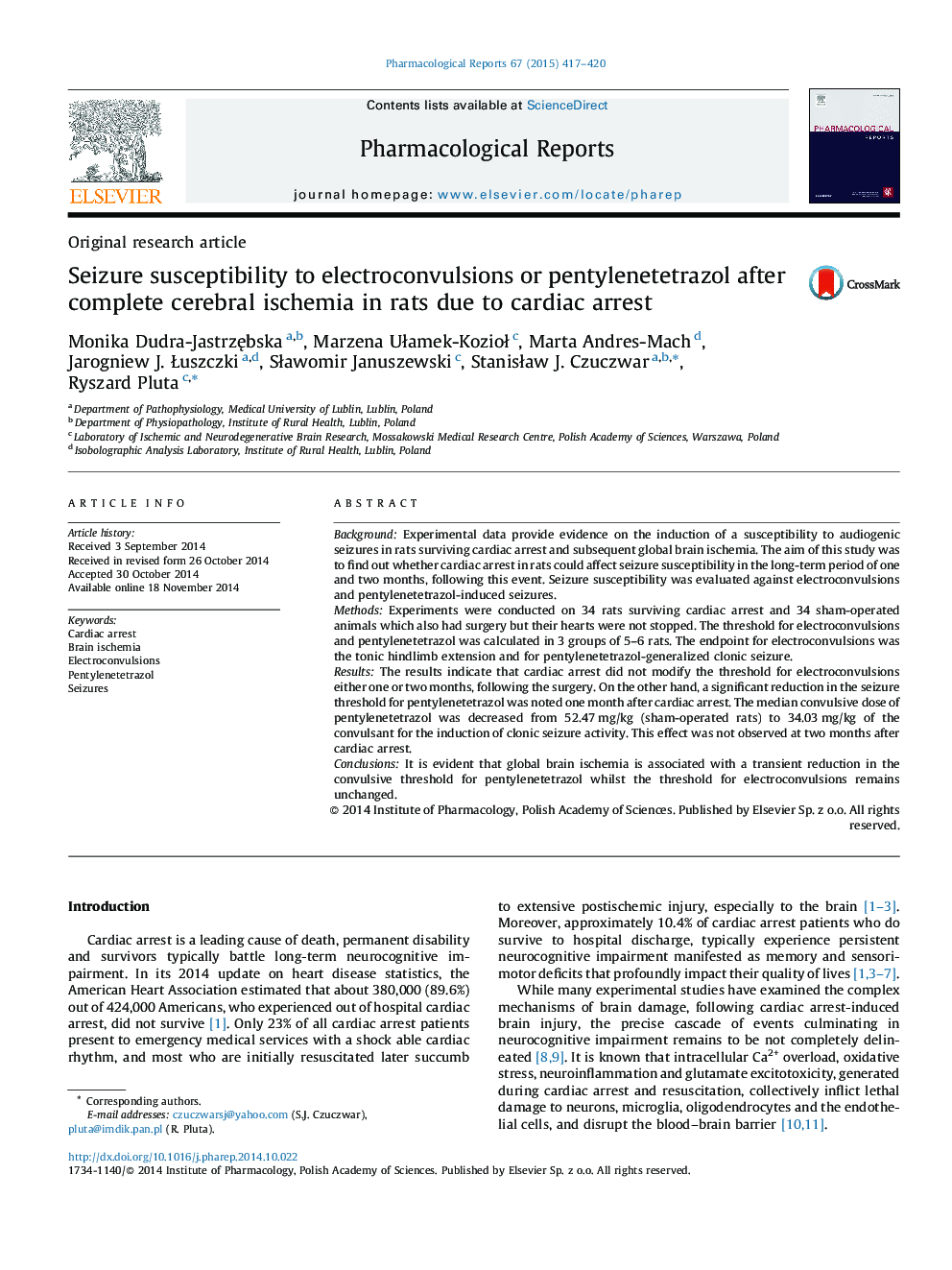| Article ID | Journal | Published Year | Pages | File Type |
|---|---|---|---|---|
| 2011875 | Pharmacological Reports | 2015 | 4 Pages |
BackgroundExperimental data provide evidence on the induction of a susceptibility to audiogenic seizures in rats surviving cardiac arrest and subsequent global brain ischemia. The aim of this study was to find out whether cardiac arrest in rats could affect seizure susceptibility in the long-term period of one and two months, following this event. Seizure susceptibility was evaluated against electroconvulsions and pentylenetetrazol-induced seizures.MethodsExperiments were conducted on 34 rats surviving cardiac arrest and 34 sham-operated animals which also had surgery but their hearts were not stopped. The threshold for electroconvulsions and pentylenetetrazol was calculated in 3 groups of 5–6 rats. The endpoint for electroconvulsions was the tonic hindlimb extension and for pentylenetetrazol-generalized clonic seizure.ResultsThe results indicate that cardiac arrest did not modify the threshold for electroconvulsions either one or two months, following the surgery. On the other hand, a significant reduction in the seizure threshold for pentylenetetrazol was noted one month after cardiac arrest. The median convulsive dose of pentylenetetrazol was decreased from 52.47 mg/kg (sham-operated rats) to 34.03 mg/kg of the convulsant for the induction of clonic seizure activity. This effect was not observed at two months after cardiac arrest.ConclusionsIt is evident that global brain ischemia is associated with a transient reduction in the convulsive threshold for pentylenetetrazol whilst the threshold for electroconvulsions remains unchanged.
